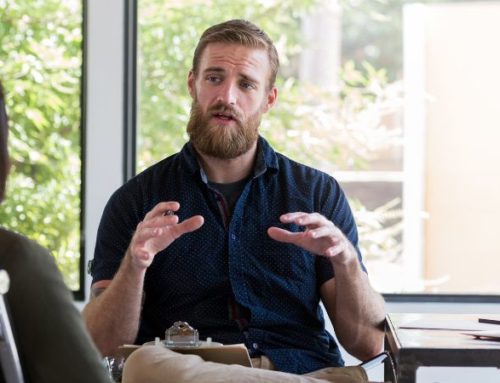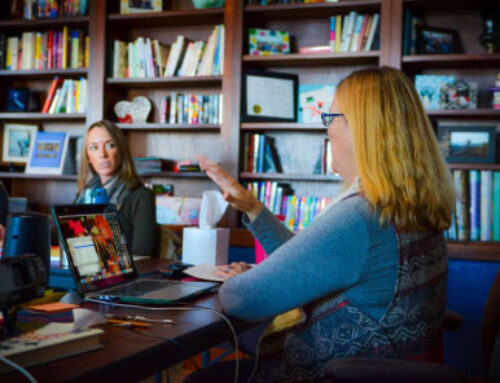Counselors are involved in the daily lives of those who are addicted to either alcohol or drugs. These counselors also assist families in helping their loved ones recover from the effects of addiction. This form of counseling is extremely sensitive, necessary, and gratifying for experts who put their careers first and remain dedicated to their work.
Because addiction is such a common problem, a licensed addiction counselor is much in demand. Loveland, Colorado, however, does not easily give a license to those practicing but to only the most deserving of all! This overview will provide you with all relevant information regarding Colorado’s license requirements to become a licensed substance abuse counselor.
Methods for Becoming a Certified or Licensed Addiction Counselor
This program is managed and overseen by the Colorado Office of Behavioral Health (OBH), also known as the Clinical Training Program for Certified Addiction Counselors (CAC). The OBH also frames the requirements that must be met by all substance addiction counselors in the United States. The Colorado Department of Regulatory Affairs (DORA) is the organization responsible for overseeing the regulation of counselors in Colorado. A total of four levels of official credentials are available:
1. Certified Addiction Counselor Level 1
This is classified as a beginner’s position to provide new counselors with on-the-job exposure while restricting their interactions with patients.
2. Certification for Addiction Counselor, Level 2
In essence, this is a full-fledged substance addiction counselor who can practice autonomously and provide a plethora of services, except for professional supervision to clients.
3. Certification for Addiction Counselor, Level 3
Counselors at this level can work independently and perform clinical supervisory responsibilities.
4. Licensed Addiction Counselor
This level is comprised of counselors who have completed the most rigorous educational and professional training programs. The primary need is to hold a graduate-level qualification.
Requirements for Becoming a Licensed Addiction Counselor
You have to be one of the most skilled and knowledgeable drug addiction counselors to become a Licensed Addiction Counselor (LAC). Loveland, Colorado counselors, often attain this rank after making their way through all the other ranks:
Education Requisite
Obtain a master’s or a doctorate in clinical behavioral health. It is allowed to have a degree in any of the following fields:
- Community Counseling
- Counseling
- Psychology as a Medical Specialty
- Counseling Psychology
- Anatomy and Physiology
- Social Work at a Hospital or Clinic
- Advanced Practice in Psychiatric Nursing
- Addiction Medicine
Work Requisite
No set amount of clinically regulated work experience is necessary to become a LAC; however, these counselors must satisfy the same requirements as all CAC Level 3 counselors. If the counselor already possesses a master’s or doctoral degree in a relevant field, they must finish 3,000 hours of supervision when they begin the process of certification.
Training Requisite
Attend and pass all of the CAC3-level training classes and exams. The exception to this rule is if the counselor holds a master’s or doctoral degree in a relevant field.
- Addiction Treatment Principles – 21 hours
- Addiction Treatment and Infectious Diseases – 14 hours
- 14-hour Pharmacology Day 1
- A total of 21 hours of motivational interviewing
- Counseling in groups – 21 hours
- 14 hours of pharmacology 2 class
- 14 hours of instruction on professional ethics
- The first 21 hours of clinical supervision
- At least 14 hours of Clinical Supervision 2
- Motivational Interviewing – 14 hours of advanced training
Exam Requisite
Examination for Master Addiction Counselor Certification.
Additional Requisite
Take an online test in Jurisprudence and pass it with flying colors.
Council for Accreditation of Counseling and Related Educational Programs for Certification
Institutional and specialized accreditation are both acknowledged in the United States. All aspects of an institution are considered when the Accreditation Commission accredits an institution for Institutions of Higher Education (ACHE). The Council accredits master’s and doctorate degree programs in counseling for Accrediting of Counseling and Related Educational Programs (CACREP), a specialist accreditation agency. CACREP reviews are only open to institutions that have previously been certified. Assessment for accreditation will focus on graduate intervention programs.
To assure the greatest level of quality, choose a CACREP-accredited program. These programs are recognized to be of the highest caliber. The CACREP has recognized several counseling specializations, including addiction therapy. Students who graduate with an accredited degree in addiction therapy are well equipped to work with people addicted to drugs or alcohol and their families. Alcohol, food, drugs, gambling, and sex are examples of addictive habits that can negatively impact one’s personal or professional life.
CACREP-accredited courses will center on therapeutic approaches and addiction stages, covering prevention, rehabilitation, and relapse preventative measures. These 60-semester credit courses will involve the deployment of interventions.
Choosing a CACREP-accredited program gives students the assurance that:
- National standards are met or exceeded by the program.
- Instead of psychology or education, the program’s emphasis will be on professional counseling.
- A lot of people have praised the program.
- The National Counselor Examination (NCE) for Licensure and Certification is more difficult for CACREP graduates to pass.
- It is expected that all licensing criteria will be satisfied.
Conclusion
At Colorado Counselor Training it is our mission to facilitate the growth and development of Colorado’s Addiction Counselors and Mental Health Professionals. We provide effective, affordable, and accessible training to all eligible candidates. To learn more or to view a class schedule you can call 970-410-3610 and speak to our experts.




